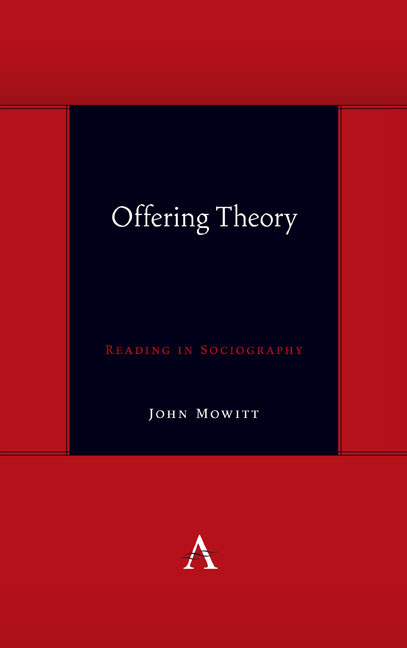Book contents
- Frontmatter
- Dedication
- Contents
- Acknowledgments
- The Pretext
- Introduction: Theory in Limbo
- 1 Queer Resistance: Foucault and the Unnamable
- 2 Stumbling on Analysis: Psychoanalysis and Everyday Life
- 3 Strangers in Analysis: Nationalism and the Talking Cure
- 4 “Jamming”
- 5 WWJD?
- 6 What Said Said
- 7 Apart from Theory
- 8 Conclusion: Theory Is Out There
- References
- Index
Introduction: Theory in Limbo
Published online by Cambridge University Press: 14 August 2020
- Frontmatter
- Dedication
- Contents
- Acknowledgments
- The Pretext
- Introduction: Theory in Limbo
- 1 Queer Resistance: Foucault and the Unnamable
- 2 Stumbling on Analysis: Psychoanalysis and Everyday Life
- 3 Strangers in Analysis: Nationalism and the Talking Cure
- 4 “Jamming”
- 5 WWJD?
- 6 What Said Said
- 7 Apart from Theory
- 8 Conclusion: Theory Is Out There
- References
- Index
Summary
Surely, now more needs to be said about the “when or where” of what precisely. My tedious recourse to capitalization, “Theory,” demands it.
As if implicitly demonstrating the principle that the event of decolonization takes place in both the colony and the metropole, the debate over Theory— largely, but not exclusively in the North and the West— has long assumed a necro- political tone. I myself have chimed in. Apart from a certain critique of Mbembe's existential humanism, what seems called for now is less fussing over whether Theory is alive or dead— let's just stipulate that its condition is “chronic”— and more careful consideration of its circumstances. Or, more precisely, how did its condition arise and with what implications for those of us who insist upon handling Theory?
Although Adorno's feelings about Nietzsche are hard to pin down, his approach to die Liebhaber in “Bach Defended Against His Devotees” seems obviously to channel the sentiment found in Nietzsche's stinging aphorism (number 298) from the first volume of Human All Too Human: “In every party there is someone whose far too credulous expression of the party's principles provokes others to defect” (Nietzsche 2010, 198). Regardless of whether Nietzsche is his source, Adorno's “devotee” is arguably the Doppelgänger of the thinker who knows how to assimilate tradition by “hating it properly.” Frankly, I am not especially concerned here to sort the matter of influence. Instead, the point is to situate Theory in the context of a thinking— as my title clearly suggests— about how its offering participates in the logic of devotion challenged by Adorno. More particularly, in a straightforwardly pedagogical mood, my discussion and the readings that follow explore, within the semantic resonances of “offering,” how one might work with Theory so as to, as it were, sacrifice it properly. Drawing initially on Terry Eagleton and Giorgio Agamben I consider here how Theory is exposed, even risked through its offering, and examine what grasp of Theory emerges from thinking its offering as an act of sacrifice. Theory not as on offer, but Theory as offering, or as I will propose, Theory as “giving a reading.” How does one handle that? When and where does that handling take place?
- Type
- Chapter
- Information
- Offering TheoryReading in Sociography, pp. 1 - 14Publisher: Anthem PressPrint publication year: 2020



